Keynote Speakers
Keynotes are for all conferences of 2018 ISPA, SpaCCS, IUCC, BDCloud, SocialCom, SustainCom, and associated workshops and symposia.
¡¡
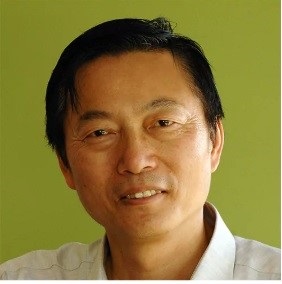 |
Professor Wanlei Zhou University of
Technology Sydney |
| Title: Privacy-preserving in
Location-Based Services ¡¡ |
| Abstract:
In this talk we first systematically present the current research status of the privacy-preserving in Location-Based Services (LBS), including the location privacy definition, the attacks and adversaries, the location privacy preserving mechanisms, the location privacy metrics, and the current status of location based applications. Then we will discuss three application cases. The first application case is to enhance privacy of LBS in wireless vehicular networks, where we develop an LBS privacy-enhancing scheme that is dedicated to the vehicular environment by exploring the unique features of queries from in-vehicle users. In the second application case we present a private Blockchain based method for task payment that effectively preserves individual privacy in the entire crowdsensing system. And in the third applicaiton case we deal with the trajectory privacy preserving in mobile crowdsensing, where we develop a location privacy preserving framework based on economic models for mobile crowdsensing applications. |
| Short Bio |
|
Professor Wanlei Zhou received the B.Eng and M.Eng degrees from Harbin Institute of Technology, Harbin, China in 1982 and 1984, respectively, and the PhD degree from The Australian National University, Canberra, Australia, in 1991, all in Computer Science and Engineering. He also received a DSc degree (a higher Doctorate degree) from Deakin University in 2002. He is currently the Head of School of Software in University of Technology Sydney (UTS). Before joining UTS, Professor Zhou held the positions of Alfred Deakin Professor, Chair of Information Technology, and Associate Dean (International Research Engagement) of Faculty of Science, Engineering and Built Environment, Deakin University. Professor Zhou has been the Head of School of Information Technology twice (Jan 2002-Apr 2006 and Jan 2009-Jan 2015) and Associate Dean of Faculty of Science and Technology in Deakin University (May 2006-Dec 2008). Professor Zhou also served as a lecturer in University of Electronic Science and Technology of China, a system programmer in HP at Massachusetts, USA; a lecturer in Monash University, Melbourne, Australia; and a lecturer in National University of Singapore, Singapore. His research interests include security and privacy, bioinformatics, and e-learning. Professor Zhou has published more than 400 papers in refereed international journals and refereed international conferences proceedings, including many articles in IEEE transactions and journals. |
¡¡
 |
Schahram Dustdar Technical University of
Vienna |
| Title: Paradigmatic Research Challenges in IoT Systems Engineering |
| Abstract:
This talk explores the research challenges in the domain of IoT from multiple angles and reflects on the urgently needed collective efforts from various research communities to collaborate on those. Our approach fundamentally challenges the current thinking and understanding of scientific, technological, and political paradigms in tackling the engineering of IoT systems. We discuss technical paradigms and research challenges in the domains of Cloud and Edge Computing as well as the requirements of people in such systems. We will explore how these novel approaches impact application composition utilizing AI and Edge Computing. |
| Short Bio |
|
Schahram Dustdar is
Professor of Computer Science heading the Distributed Systems
Group at the Technical University of Vienna. From 2004-2010 he
was also Honorary Professor of Information Systems at the
Department of Computing Science at the University of Groningen
(RuG), The Netherlands. From 1999 - 2007 he worked as the
co-founder and chief scientist of Caramba Labs Software AG in
Vienna (acquired by Engineering NetWorld AG), a venture capital
co-funded software company focused on software for collaborative
processes in teams. Caramba Labs was nominated for several
(international and national) awards: World Technology Award in
the category of Software (2001); Top-Startup companies in
Austria (Cap Gemini Ernst & Young) (2002); MERCUR
Innovationspreis der Wirtschaftskammer (2002). |
¡¡
 |
C. L. Philip Chen University of Macau, Macau, China |
| Title: Big Data Analytics: Computational Intelligence Approaches and Prospect in Future Applications |
| Abstract:
It is already true that Big Data has
drawn huge attention from researchers in information
sciences, policy and decision makers in governments and
enterprises. A large number of fields and sectors, ranging
from economic and business activities to public
administration, from national security to scientific
researches in many areas, involve with Big Data problems.
This talk is aimed to discuss a close-up view about Big Data
-- Big Data analytical using computation intelligence
approaches, together with Big Data applications,
opportunities and challenges, as well as prospect in future
applications.
¡¡
|
| Short Bio |
|
Dr. Chen¡¯s research
areas are in systems, cybernetics and computational
intelligence. After being served as the President of IEEE
Systems, Man, and Cybernetics Society (SMCS) (2012-2013), where
he also has been a distinguished lecturer for many years and
received Outstanding Service Awards 4 times, currently, he is
the Editor-in-Chief of IEEE Transactions on Systems, Man, and
Cybernetics: Systems (2014- ) and an Associate Editor of IEEE
Trans on Fuzzy Systems, IEEE Trans on Cybernetics. He was the
Chair of TC 9.1 Economic and Business Systems of IFAC
(2015-2017). |
¡¡
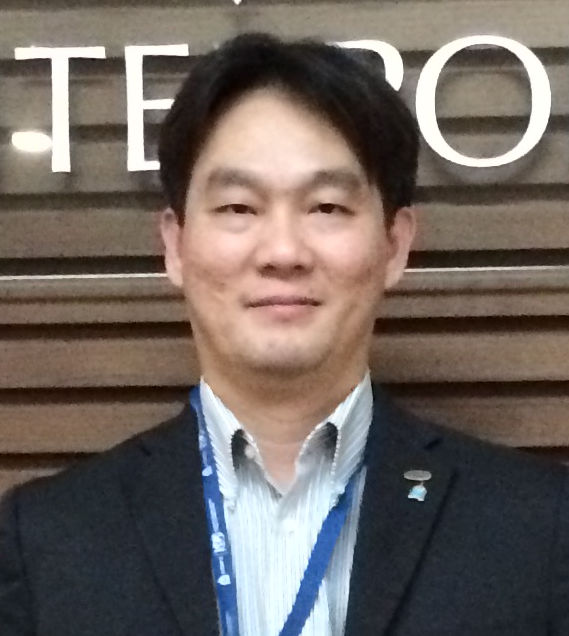 |
Kim-Kwang Raymond Choo The University of Texas at San Antonio (UTSA) USA |
| Title: Cyber security threat and forensic intelligence |
| Abstract:
Cyber threat intelligence and analytic is among one of the fastest growing interdisciplinary fields of research bringing together researchers from different fields such as digital forensics, political and security studies, criminology, cyber security, big data analytics, machine learning, etc. to detect, contain and mitigate advanced persistent threats and fight against organized cybercrimes. In this presentation, we will discuss some of the challenges underpinning this inter- / trans- /multi-disciplinary field as well as research opportunities (e.g. how can we leverage advances in deep learning to better predict cyber attacks?). |
| Short Bio |
|
Kim-Kwang Raymond Choo received the Ph.D. in Information Security in 2006 from Queensland University of Technology, Australia. He currently holds the Cloud Technology Endowed Professorship at The University of Texas at San Antonio (UTSA). In 2016, he was named the Cybersecurity Educator of the Year ¨C APAC (Cybersecurity Excellence Awards are produced in cooperation with the Information Security Community on LinkedIn), and in 2015 he and his team won the Digital Forensics Research Challenge organized by Germany¡¯s University of Erlangen-Nuremberg. He is the recipient of the 2018 UTSA College of Business Col. Jean Piccione and Lt. Col. Philip Piccione Endowed Research Award for Tenured Faculty, IEEE TrustCom 2018 Best Paper Award, ESORICS 2015 Best Research Paper Award, 2014 Highly Commended Award by the Australia New Zealand Policing Advisory Agency, Fulbright Scholarship in 2009, 2008 Australia Day Achievement Medallion, and British Computer Society¡¯s Wilkes Award in 2008. He is also a Fellow of the Australian Computer Society, an IEEE Senior Member, Co-Chair of IEEE Multimedia Communications Technical Committee (MMTC)¡¯s Digital Rights Management for Multimedia Interest Group, and an Honorary Commander of the 502nd Air Base Wing, Joint Base San Antonio-Fort Sam Houston. |
¡¡
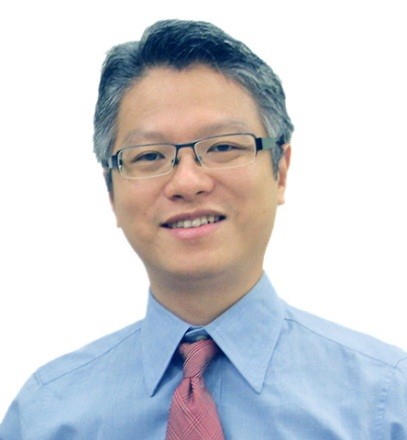 |
Yonggang Wen Nanyang Technological University (NTU), Singapore |
| Title: Training Acceleration for Distributed Machine-Learning Systems at Scale: A Network-Centric Approach |
|
Abstract: Distributed machine-learning (ML) systems, in response to big data and big models, play an important role in fueling the emerging artificial intelligence revolution. In this context, the parameter server (PS) framework has been widely used to train models at scale in modern ML systems, such as Petuum, MxNet, TensorFlow and Factorbird. It tackles the big-data problem by having worker nodes perform data-parallel computation, and server nodes maintain globally shared parameters. However, when training models of large size, worker nodes frequently pull parameters from server nodes and push updates to server nodes, often resulting in high communication overhead. Our investigations show that modern distributed ML applications could consume up to 5 times more time on communication than computation. To address this problem, we propose an optimized communication layer for the PS framework, called as Parameter Flow (PF). The PF employs a Swiss-army-knife approach by staking three complementary techniques in the system level. First, we introduce an update-centric communication (UCC) model to exchange data between worker/server nodes via two operations: broadcast and push. Second, we develop a dynamic value-bounded filter (DVF) to reduce network traffic by selectively dropping updates before transmission. Third, we design a tree-based streaming broadcasting (TSB) system to efficiently broadcast aggregated updates among worker nodes. Our proposed PF can significantly reduce network traffic and communication time. Extensive performance evaluations have showed that PF can speed up popular distributed ML applications by a factor of up to 4.3 in a dedicated cluster, and up to 8.2 in a shared cluster, compared to a generic PS system without PF. The PF framework has been used by a few industry partners. |
| Short Bio |
|
Dr. Yonggang Wen is an associate professor with School of Computer Science and Engineering (SCSE) at Nanyang Technological University (NTU), Singapore. He is also the Associate Dean (Research) at College of Engineering (CoE) and the Acting Director of Nanyang Technopreneurship Centre (NTC) at NTU. He received his PhD degree in Electrical Engineering and Computer Science (minor in Western Literature) from Massachusetts Institute of Technology (MIT), Cambridge, USA, in 2008. Previously he has worked in Cisco to lead product development in content delivery network, which had a revenue impact of 3 Billion US dollars globally. Dr. Wen has published over 200 papers in top journals and prestigious conferences. His systems research has gained global recognitions. His work in Multi-Screen Cloud Social TV has been featured by global media (more than 1600 news articles from over 29 countries) and received ASEAN ICT Award 2013 (Gold Medal). His work on Cloud3DView for Data Centre Life-Cycle Management, as the only academia entry, has won the 2015 Data Centre Dynamics Awards ¨C APAC (the ¡®Oscar¡¯ award of data centre industry) and 2016 ASEAN ICT Awards (Gold Medal). He is the winner of 2017 Nanyang Award for Innovation and Entrepreneurship, the highest recognition at NTU. He is a co-recipient of Best Paper Awards at 2016 IEEE Globecom, 2016 IEEE Infocom MuSIC Workshop, 2015 EAI Chinacom, 2014 IEEE WCSP, 2013 IEEE Globecom and 2012 IEEE EUC, and a co-recipient of 2015 IEEE Multimedia Best Paper Award. He serves on editorial boards for IEEE Communications Survey & Tutorials, IEEE Transactions on Multimedia, IEEE Transactions on Circuits and Systems for Video Technology, IEEE Wireless Communication, IEEE Transactions on Signal and Information Processing over Networks, IEEE Access Journal and Elsevier Ad Hoc Networks, and was elected as the Chair for IEEE ComSoc Multimedia Communication Technical Committee (2014-2016). His research interests include artificial intelligence, blockchain, cloud computing, green data center, big data analytics, multimedia network and mobile computing. |
¡¡
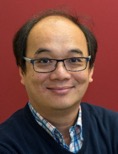 |
Willy Susilo University of Wollongong, Australia |
| Title: Security Proof of Digital Signatures |
|
Abstract: Digital signatures are the foundation of modern cryptography. We prove the security of a signature scheme by reducing an attack to solving an underlying hard problem. An ideal security reduction should be a tight reduction under a standard assumption in the standard security model without random oracles. Unfortunately, it is hard to program a security reduction capturing the above four features. In this talk, I will focus on tight reduction for digital signatures and introduce two different methods towards tight reduction. |
| Short Bio |
|
Willy Susilo is a Professor, the Head of School of Computing and Information Technology and the director of Institute of Cybersecurity and Cryptology (iC2) at the University of Wollongong. He was previously awarded the prestigious ARC Future Fellow by the Australian Research Council (ARC) and the Researcher of the Year award in 2016 by the University of Wollongong. His main research interests include cybersecurity, cryptography and information security. His work has been cited more than 9,000 times in Google Scholar. He is the Editor-in-Chief of the Information journal. He has served as a program committee member in dozens of international conferences. He has published more than 400 research papers in the area of cybersecurity and cryptology. |
¡¡
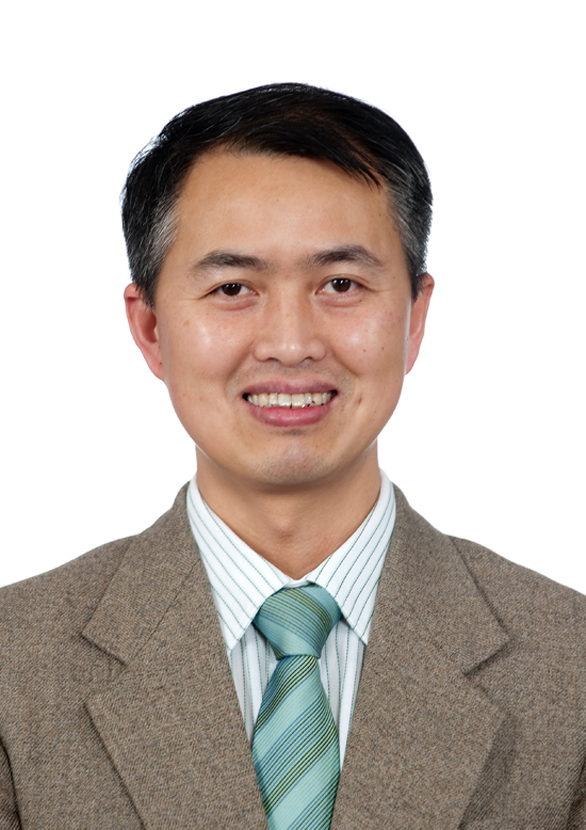 |
Xun Yi RMIT, Australia |
| Title: Blockchain-based online voting |
|
Abstract: A blockchain is a public, append-only, immutable ledger maintained by a decentralised peer-to-peer network. Whilst first designed for digital currencies without trusted third parties, blockchain technology has now moved into many fields beyond finance. In this talk, we focus on blockchain-based online voting. There are a number of existing proposals for such a system, using the blockchain as a public bulletin board to store the voting data, such as FollowMyVote and TIVI. These proposals achieve voter privacy by involving trusted authorities that obfuscate the relation between real-world identities and keys, or by shuffling encrypted votes before decrypting. We propose a self-tallying online voting system using a smart contract deployed on Ethereum. The system reduces the responsibilities of election authorities to a minimum and allows candidate ranking, instead of just voting for one candidate. The voting mechanism is inspired by score voting, which enables voters to assign points to different candidates directly without any restrictions apart from the total number of available points specified. |
| Short Bio |
|
Xun Yi is currently a Professor with the Computer Science and Software Engineering, School of Science, RMIT University, Australia. His research interests include applied cryptography, computer and network security, mobile and wireless communication security, and data privacy protection. He has published more than 160 research papers in international journals and conference proceedings. He has ever undertaken program committee members for more than 30 international conferences. Recently, he has led some Australia Research Council (ARC) Discovery Projects in data privacy protection. |
¡¡
¡¡
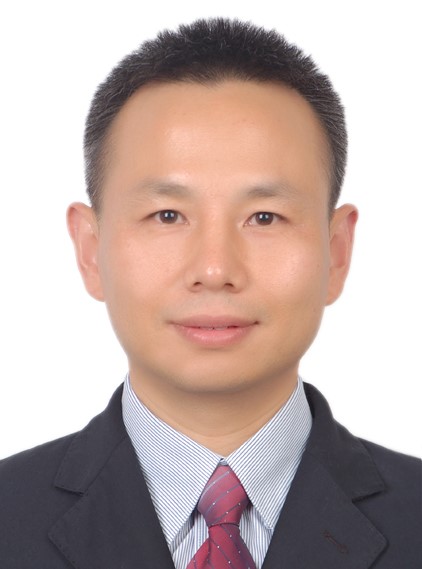 |
Geyong Min The University of Exeter, UK |
| Title: Data-Driven Knowledge Discovery for Intelligent Cloud and Network Management |
| Abstract:
Aiming at achieving high performance and
availability of Cloud computing and networking systems, our
vision is to conduct efficient data analysis in order to dig
valuable knowledge and actionable insights hidden in network big
data for improving the design, operation, and management of
Cloud and networks. This talk will present the innovative big
data modelling and processing technologies, real-time
incremental data analysis tools, and a cost-effective
distributed platform we have recently developed to support
better decision-making for system design, anomaly detection,
resource management and optimization. This talk offers the
theoretical underpinning for efficient processing of big data,
and also opens up a new horizon of research and development by
exploiting the key intelligence and insights hidden in
content-rich big data for the design and improvement of Cloud
computing and networking systems. ¡¡ |
| Short Bio |
|
Professor Geyong Min is a Chair in High Performance Computing and Networking from The University of Exeter, UK. His recent research has been supported by European Horizon-2020, FP6/FP7, UK EPSRC, Royal Society, Royal Academy of Engineering, and industrial partners including British Telecom, Huawei Technologies, IBM, INMARSAT, Motorola, and InforSense Ltd. He has published more than 200 research papers in leading international journals including IEEE/ACM Transactions on Networking, IEEE Journal on Selected Areas in Communications, IEEE Transactions on Computers, IEEE Transactions on Parallel and Distributed Systems, IEEE Transactions on Communications, and IEEE Transactions on Wireless Communications, and at reputable international conferences, such as SIGCOMM-IMC, INFOCOM, and ICDCS. He is an Associated Editor of several international journals, e.g., IEEE Transactions on Computers, and IEEE Transactions on Cloud Computing. He served as the General Chair/Program Chair of a number of international conferences in the area of Information and Communications Technologies. |
¡¡
 |
Albert Y. Zomaya University of Sydney, Australia |
| Title: Resource Provisioning for the Internet of Things: Open Issues and Challenges |
| Abstract:
Recent technological trends such as
Industry 4.0 introduced new challenges that push the limit of
current computer and networking architectures. It demands the
connection of thousands, if not millions, of sensors and mobile
devices coupled with optimized operations to automate various
operations inside factories. This led to the new era of Internet
of Things (IoTs) where lightweight (possibly mobile) devices are
envisaged to send vital information to cloud data centres
(mobile and fixed infrastructure) for further processing and
decision making. Current cloud computing systems, however, are not able to efficiently digest and process collected information from IoT devices with strict response requests for two main reasons: (1) the round trip delay between IoT devices to the processing engines of cloud could exceed an application¡¯s threshold, and (2) network links to cloud resources could be clogged when IoT devices flush data in an uncoordinated fashion. Fog and Edge Computing are two solutions to address both of the previous problems. Though designed to alleviate the same problem, they have fundamental differences that make adopting one more applicable than the other. This talk will overview the practical concerns of today¡¯s IoT implementations through tackling the most important obstacles that hinder their adoption. First, production of applicable network (fixed and mobile) latency models to capture all elements of IoT platforms. Second, building a holistic platform to orchestrate various inter-related layers of IoT platforms, including connectivity, big-data analytics, and workload optimization. Third, proposing viable solutions that can be actually implemented in IoT-based applications. More details will be provided about the above issues during the talk. ¡¡ |
| Short Bio |
|
ALBERT Y. ZOMAYA is the Chair Professor of
High Performance Computing & Networking and served as Australian
Research Council Professorial Fellow (2010-2014) in the School
of Information Technologies, Sydney University. He is also the
Director of the Centre for Distributed and High Performance
Computing which was established in late 2009. |
¡¡